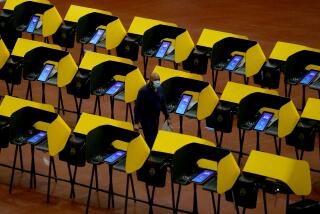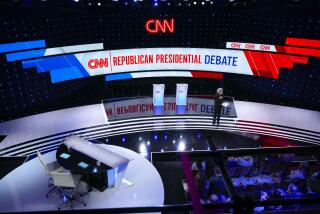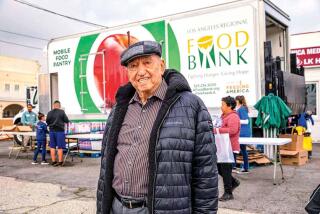Study Indicates Well-Off Give Most in Politics
- Share via
WASHINGTON — A smaller percentage of Americans contributes an increasingly large proportion of the funds raised by political campaigns, while volunteerism plays a far smaller role in determining the outcome of elections, according to a study to be released today.
The study, based on a random survey of 15,000 Americans in 1989, also found that income and education were better predictors of an individual’s participation in political activities than was race.
“The gap in activity between the rich and the disadvantaged is growing,” according to the study, which was conducted by the Citizen Participation Project in New York in conjunction with the Ford, Spencer and Hewitt foundations and the National Science Foundation.
“As political campaigns have become more technical and professional, the need for money--to hire paid staff, buy television time, obtain computerized mailing lists--goes up, and the value of old-fashioned canvassing goes down,” the study said.
The only way to begin to compensate for the sheer weight of money in the political process is through better educating the electorate, said Sidney Verba, director of the study and professor of government at Harvard University. The more educated an individual, the more likely he or she is to participate in the political process, and the more valuable that participation becomes, he said.
Of people making $125,000 or more, 31.9% were “very active” in the political process--that is, participated in political organizations and voted; only 5.3% in that income group were completely “inactive.”
But for those making less than $15,000, 4.3% were considered “very active,” while 22.2% were inactive.
Among whites of all income levels, 7.7% were completely “inactive,” 9.2% of African Americans were inactive, and 15.8 of Latinos were inactive.
“(Latinos) have three strikes against them . . . citizenship, language and a relatively young population,” said William Diaz of the Governance and Public Policy Department of the Ford Foundation, noting that the study also found that individuals participate more as they grow older.
Overall, the study said, people who are most dependent on government assistance are the least likely to express their political views.
More to Read
Get the L.A. Times Politics newsletter
Deeply reported insights into legislation, politics and policy from Sacramento, Washington and beyond. In your inbox twice per week.
You may occasionally receive promotional content from the Los Angeles Times.










